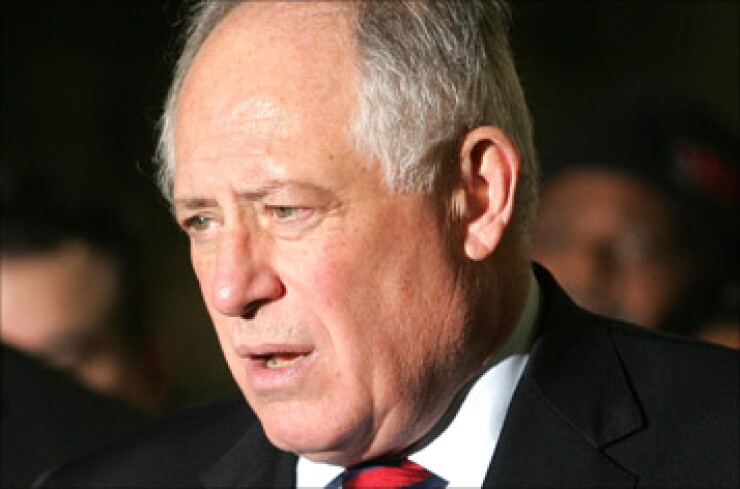
CHICAGO — Illinois' economy, debts, and the fate of an expiring income tax hike are expected to take center stage in November's race for governor between Democratic incumbent Pat Quinn and Republican businessman Bruce Rauner.
Rauner emerged the victor among four vying for the Republican nod in Tuesday's primary election, capturing 40% of the GOP vote, beating state Sen. Kirk Dillard of Hinsdale who claimed 37%. State Sen. Bill Brady, of Bloomington and state Treasurer Dan Rutherford came in third and fourth, respectively.
Quinn captured 72% of the primary vote with his little known challenger Tio Hardiman receiving 28%. Quinn initially faced a more formidable challenger in banker Bill Daley, a former member of the Obama and Clinton's administrations and brother of retired Chicago Mayor Richard Daley, but Daley dropped out of the primary early on.
Rauner and Quinn will face each in the Nov. 4 general election.
Quinn and Rauner, a venture capitalist who lives in the north shore suburbs of Chicago, came out firing against each other after the election results were clear. Quinn focused a new campaign advertisement on Rauner's position on the state's minimum wage.
Quinn has called on him to support a hike without conditions. Rauner says the state's rate should match the federal one. He then said he could support a state minimum wage increase if tied to tax and regulatory reforms.
Quinn also is stressing his populist roots and early history in politics as an outsider and reformer who represents the average citizen while portraying Rauner as out of touch with the middle class.
"As long as I'm governor, I'm going to fight hard for the 99.99 %" Quinn said in his acceptance speech.
On state finances, Quinn will highlight the General Assembly's passage of a pension overhaul in December after two years of political gridlock on the issue. Quinn can also cite Medicaid and retiree healthcare reforms, projects and jobs created by the state's $31 billion capital program, and high profile businesses that have expanded under his watch.
"Illinois is making a comeback and we know we have a lot of work to do," he said.
Rauner, who spent $6 million of his own money on his campaign, has portrayed himself as a political outsider and Quinn as a career politician at fault for Illinois' fiscal woes. He has called for term limits and policies more friendly to business expansion.
Rauner has plenty of financial ammunition to use against Quinn.
The state's credit rating is the weakest among states at the low single-A level, its financial results for last year show a worsening of its overall net fiscal position, making it one of only two states in the red in the net asset at a negative $47.8 billion. Though it's reduced its backlog, the state is still expected to bring more than $5 billion of unpaid bills into the next fiscal year. Its unemployment is near a national high.
"It's a choice between failure of the past and a new day, a bright future," Rauner said in his victory speech.
How Rauner and Quinn intend to address the looming loss of $1.6 billion in revenue when a 2011 income tax hike partially expires midway through the next fiscal year is the issue to watch, investors and analysts have said. The loss grows to $4 billion in fiscal 2016.
Quinn is expected to take a position on whether the state should cut spending, raise other revenues or extend or make permanent the tax when he unveils his fiscal 2015 budget next week.
Rauner has said the state should let the tax expire but has not said how the revenue loss should be dealt with in the budget.





